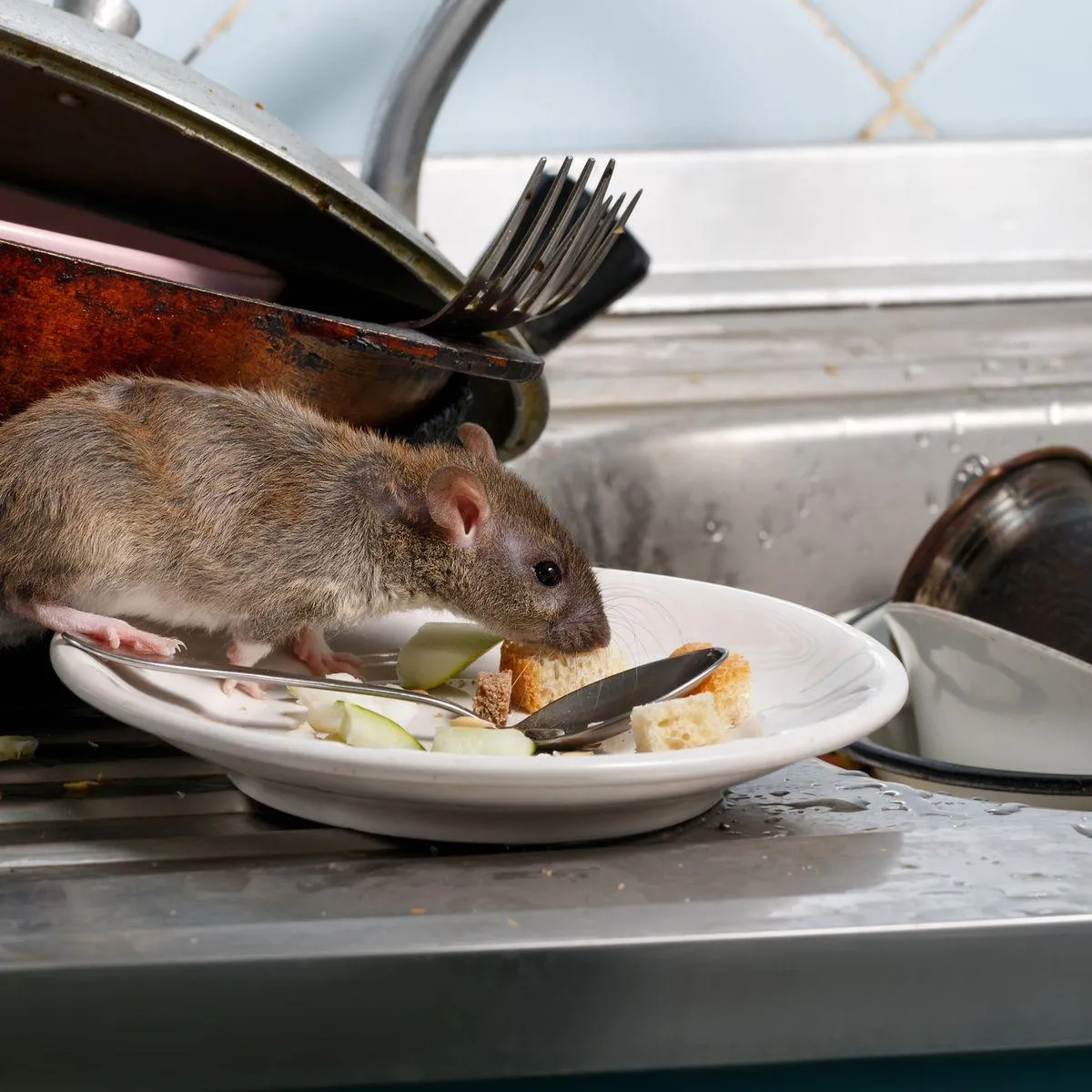Designed To Educate, Motivate & Inspire
The Western Way Journal

Rodent Proofing: Secure Your Home from Mice and Rats
The Growing Problem of Rodent Infestations
Rodents are more than just a nuisance. They pose significant health risks as carriers of diseases such as hantavirus, leptospirosis, and salmonella. Furthermore, they can cause substantial property damage by gnawing on electrical wires, which can create fire hazards, and compromising the structural integrity of your home with their burrowing and nesting habits.
Key Strategies for Rodent Proofing Your Home
1. Inspection and Identification: The first step in effective rodent proofing is to understand where and how rodents are entering your home. This involves a thorough inspection of both the interior and exterior of your property. Look for signs of rodent activity such as droppings, gnaw marks, and greasy rub marks along walls.
2. Exclusion Techniques: Once potential entry points have been identified, the next step is to seal these openings to prevent rodents from entering. This can be achieved by using steel wool, metal sheeting, or specially designed seals to close gaps around pipes, vents, and cables that enter your home. Remember, mice can squeeze through openings as small as a dime!
3. Environmental Modifications: Reducing the attractiveness of your home to rodents is a key preventative measure. This includes:
Removing food sources by storing food in sealed containers and disposing of garbage regularly in sealed bins.
Eliminating water sources such as leaky pipes and ensuring good drainage outside the home.
Decluttering spaces like basements, attics, and garages to reduce nesting opportunities.
4. Ongoing Monitoring and Maintenance: Installing traps and regularly monitoring them can help catch any rodents that do enter before they have a chance to establish a population. Furthermore, routine maintenance checks can help ensure that previous exclusion efforts remain effective and that new vulnerabilities are addressed promptly.
Why Professional Rodent Control Is Essential
While DIY methods can provide some level of protection, professional pest control services offer more comprehensive solutions. Experts like those at Western Way Termite and Pest Services have the knowledge and tools to effectively manage rodent populations and can provide customized solutions based on the specific needs of your home.
Professionals can also offer ongoing support and maintenance, which is crucial for keeping your home rodent-free over the long term. They can help implement integrated pest management (IPM) strategies that not only focus on immediate removal but also on preventative measures to ensure rodents do not return
FAQ Section: Common Questions About Rodent Proofing Your Home
Here, we address some of the most frequently asked questions that our customer service team receives regarding rodent proofing. These answers aim to clarify common concerns and provide you with the knowledge to better protect your home.
1. How do I know if I have a rodent problem?
Answer: Signs of a rodent problem include visible droppings, especially around food areas or under sinks; gnawing marks on furniture, wiring, or walls; unusual pet behavior; and sounds of scurrying or scratching from the walls or ceilings, especially at night.
2. What are the first steps I should take if I suspect a rodent infestation?
Answer: Start by thoroughly inspecting your home for signs of rodents, including droppings, nests, or damage from gnawing. Seal any small gaps or holes that could be entry points with materials like steel wool or caulk. Remove potential food sources by storing food in sealed containers and keeping your kitchen clean.
3. Are there effective natural remedies for keeping rodents away?
Answer: Some natural deterrents can help repel rodents, including peppermint oil, clove oil, and cayenne pepper. However, these remedies are generally more effective as preventive measures rather than solutions for an existing infestation. For ongoing issues, professional pest control services are recommended.
4. How often should I inspect my home for rodent entry points?
Answer: It’s good practice to inspect your home for potential rodent entry points at least twice a year. Pay special attention to changes in the structure or integrity of your home, such as after severe weather events or new construction work.
5. Can ultrasonic rodent repellents really work?
Answer: Ultrasonic repellents, which emit sounds that are supposed to be uncomfortable for rodents, have mixed reviews regarding their effectiveness. While some users report success, others notice no change. These devices might be better used as part of a broader rodent control strategy rather than relying on them as a sole solution.
6. What should I do if DIY methods don’t resolve my rodent problem?
Answer: If DIY methods fail, it’s important to contact a professional pest control service. Professionals can offer more comprehensive solutions, such as setting traps, using baits, and applying commercial-grade repellents in a safe and effective manner.
7. How can I rodent-proof my kitchen?
Answer: Keep your kitchen clean and free of accessible food sources. Store dry foods, including pet food, in metal or thick plastic containers with tight-fitting lids. Regularly dispose of garbage in bins with secure lids. Also, check for and seal any gaps around pipes and vents where rodents could enter.
8. Are rodents more common in certain types of homes?
Answer: Rodents can infest any type of home but are more common in areas where they have easy access to food and shelter. Homes near fields or with a lot of vegetation can be more at risk, as well as older homes that may have more cracks and openings.
Natural Rodent Repellents: Evaluating Your Options
Here's a look at some common natural rodent repellents, their pros and cons, and their overall effectiveness.
Peppermint Oil
How It Works: Peppermint oil is known for its strong scent, which is believed to be overwhelming to rodents' sensitive sense of smell, effectively driving them away.
Pros:
Non-toxic: Safe to use around children and pets.
Pleasant smell: Provides a fresh scent while serving its purpose.
Cons:
High maintenance: Requires frequent reapplication to maintain effectiveness.
Limited coverage: Only effective in small, enclosed areas.
Effectiveness: Moderate. While peppermint oil can help deter rodents from specific areas, it needs consistent reapplication and may not be effective for larger infestations.
Clove Oil
How It Works: Similar to peppermint, the strong scent of clove oil is thought to repel rodents by irritating their nasal passages.
Pros:
Natural: Offers a natural method for rodent control without harmful chemicals.
Dual-purpose: Can be used for aromatic purposes and pest control.
Cons:
Variable results: Effectiveness can vary widely, and some rodents may not be deterred.
Potential skin irritant: Care should be taken when applying to avoid skin irritation.
Effectiveness: Low to moderate. Clove oil may work as a short-term solution but is unlikely to solve more serious or ongoing rodent issues.
Ultrasonic Devices
How It Works: These devices emit high-frequency sound waves that are intended to be disruptive and uncomfortable to rodents, theoretically driving them away without being audible to humans and most pets.
Pros:
Non-invasive: Does not require handling chemicals or traps.
Ease of use: Simply plug in the device and let it run.
Cons:
Scientifically dubious: Lacks consistent scientific support for effectiveness.
Area coverage: Effective range is often limited, and signals can be blocked by furniture and walls.
Effectiveness: Low. Studies and user reports vary greatly, with many concluding that ultrasonic devices do not effectively repel rodents in practical home settings.
For more information on our services or to schedule an inspection, please visit Western Way Termites & Pest Services. Protect your investment and ensure peace of mind by choosing the right professionals for rodent control.
Office:
8505 Church St Suite 7 Gilroy, CA 95020
Call
(408)
676-4774
Email:

Copyright 2024. All Right Reserved.
